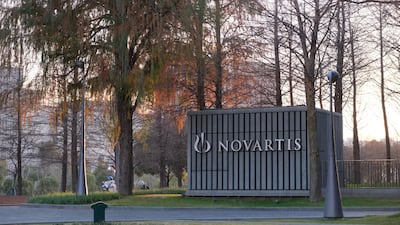China
The Novartis CEO believes the west has much to learn, especially in terms of clinical trial regulations and enrolment.
Everest Medicine obtains selected commercialization rights to first-in-class, Phase III stage bispecific peptide MT1013 from Shanxi Micot Technology at home. A trial for secondary hyperparathyroidism is due to be completed by year-end in China.
Among the Chinese AI firms raising new funding, Deep Intelligent Pharma has bagged a total of $110m in two rounds of funding since last December, while Levinthal, OxTium and Aureka have also closed new investment rounds.
Sunshine Pharma plans to invest at least $14m to set up a joint venture with fellow Chinese firm XtalPi, with goals including the discovery and development of novel molecules for autoimmune disorders.
Following the recent acceptance of a China NDA for first-in-class drug denifanstat for acne in China, Ascletis has announced positive topline results from an open-label Phase III trial focusing on the product’s long-term safety.
UK major will bag CSPC’s eight preclinical drug candidates in weight management, including most advanced asset SYH2082, a long-acting GLP-1/GIP receptor agonist with once-monthly dosing potential.
Multiple Chinese biotechs are seeking to raise new funds through IPOs on the Hong Kong and Beijing stock exchanges to support international clinical trials for their first-in-class molecules.
While a record number of China-originated first-in-class drugs were approved domestically in 2025, only one has so far entered clinical development overseas with its originator as the sole sponsor. But more progress is expected this year.
HUTCHMED sees good potential for its Syk inhibitor in autoimmune setting following positive topline Phase III results, with China NDA planned in first half.
Following Ribo Life Science’s recent Hong Kong IPO, an investor shares views with Scrip on the prospects for China's siRNA developers and likely deal trends in 2026.
While the regulatory environment for vaccines sours in the US, Valneva tells Scrip it is mulling an Asia hub and finalizing a strategy - that includes partnerships - for its marketed and pipeline products. Could it consider India or China as a new regional center?
The $172m acquisition will bring in Kylo-11, a Lp(a) inhibitor with potential once-yearly dosing, as well as other ultra long-acting siRNA candidates directed at APOC3, PCSK9 and other undisclosed targets in cardiovascular diseases.
Amgen's Bradner explains the rise of China on the global biopharma stage, Flagship's Afeyan calls out US government policies on biomedical research and more in Scrip's daily notebook.
The biopharma sector has an estimated $1.67tn in firepower for dealmaking, and a looming patent cliff means companies need to deploy that cash. EY’s Arda Ural expects a good share of it to go to deals with Chinese biopharmas.
What is the strategic intent behind Aurobindo’s moves to settle a Galafold patent dispute with Amicus Therapeutics, acquire the non-oncology business of compatriot Khandelwal Labs and get full control of a Chinese JV with Shandong Luoxin?
Deal Snapshot: Roche has scooped up a B7H3 ADC from China’s MediLink just a few months after Daiichi Sankyo temporarily halted enrolling patients in a pivotal Phase III trial with its same-class rival, Merck-partnered ifinatamab deruxtecan (I-DXd).
The CEO of Inno Medicine tells Scrip the Chinese company has developed a novel active-targeting nano-liposomal formulation to reverse coronary atherosclerosis plaque, which has yielded positive proof-of-concept Phase Ib/IIa results.
Hengrui’s relafupu-α (SHR-1701), a bifunctional fusion protein against PD-L1 and TGF-βR2, has been approved in China in combination with chemotherapy as a first-line treatment for HER2-negative, PD-L1-positive advanced gastric/gastroesophageal junction adenocarcinoma.
In 2025, the number of global Phase III trials that included US sites and were initiated by Chinese biopharma companies as the sole sponsor fell slightly, but multiple plans are in the works for 2026 following US IND approvals.
Deal Snapshot: AstraZeneca will gain global rights to Jacobio’s pan-KRAS inhibitor JAB-23E73 for up to $2bn, after the UK major in November shelved a KRAS G12D inhibitor acquired from Usynova back in 2023.



















